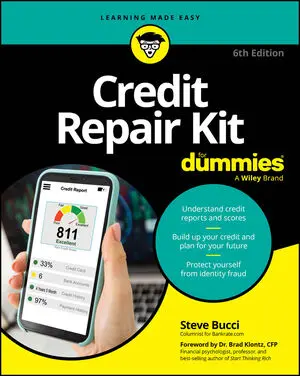Financial goals and planning help keep your credit ecosystem in balance. You want to set goals for life’s major credit-related financial milestones and then create a plan to reach those goals. Among your goals may be paying for college, buying a home, or purchasing a car.
Funding college
Unless you’re fortunate enough to have a trust fund, you and/or your parents may have to take out a student loan to pay for your higher education. For the purposes of this example, let’s assume that you’ll have to make at least some, if not all, of the loan payments in the future.
How does this type of loan fit into your overall financial environment and credit ecosystem? Be sure that it fits well, because, like an invasive species, this type of loan can’t be eradicated by ordinary means.
Student loans are exempt from most bankruptcy proceedings, so you need to understand what your payments will be and what income stream you can expect from your chosen career field.
If this loan is going to eat up too much of your future income — if, say, you’re studying to be a modestly paid social worker — you may want to supplement the loan by working part-time. Or you could pass on that expensive Ivy League school in favor of a lower-priced community or state college to lessen the future stress on your income.
Balancing your current spending with your future ability to make payments keeps this loan sustainable. This advice works for parents as well as students. How much would you pay for a mystery item hidden in a box? Probably not much. How much would you borrow to fund an education leading to an unknown job with an unknown income?
Home sweet home
In the past, millions of Americans bought a home as soon as they were able. Today, with home value appreciation no longer a certainty, the goal of homeownership warrants a second look to see how it fits into your credit and overall financial landscape.
Beyond making sure that you can afford the payments on a mortgage and that your job is secure enough to enable you to make a long-term commitment to those payments, consider this: Homeownership isn’t a good fit for everyone. Changes to employment and income and opportunities to move or travel can make a long-term commitment less certain today.
Owing more than your home is worth (referred to as being upside down on a loan) can keep you from relocating for an opportunity. Having your own place is great, but it may not be all roses for your career, finances, or credit. Homeownership complements and fits best into a stable credit environment.
Credit on wheels
You will probably use credit to make a purchase as large as a car. Making a down payment that’s large enough to keep you from owing more than your car is worth when you drive it off the lot keeps your options open.
Too small a down payment prevents you from selling your car unless you have savings to make up the difference between the sale price and what you owe. If you owe more than the car (or any asset) is worth, you’re upside down on your loan. You don’t want to turn a big part of your credit ecosystem upside down — it’s as uncomfortable as it sounds!






